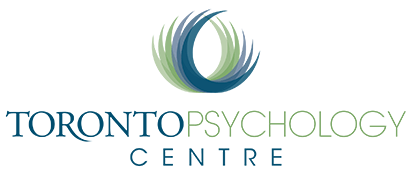
Renew And Reconnect: Tailored Therapy For Couples
“Being the ‘best you can be’ is really only possible when you are deeply connected to another. Splendid isolation is for planets, not people.” – Dr. Sue Johnson
At Toronto Psychology Centre, we offer online couples, marital, and relationship counselling across Ontario, tailored to meet the unique needs of each relationship. Whether you’re looking to rebuild, enhance, or resolve issues in your romantic partnership, our goal is to help you strengthen emotional bonds, reduce conflict, and foster deeper intimacy.
Personalized And Effective Therapy
Our therapists tailor sessions to address your relationship’s specific dynamics, ensuring a truly personalized experience. We utilize evidence-based approaches such as Emotionally Focused Therapy (EFT), Emotion-Focused Therapy for Couples (EFT-C) and The Gottman Method, designed to improve communication, resolve conflicts, and deepen emotional connections. Our team may also integrate innovative methods like Internal Family Systems to further tailor the approach to your needs.
Understanding Common Relationship Challenges
Intimate relationships often face challenging emotions and differing perspectives, especially during disputes. Common issues include feelings of hurt, resentment, and emotional detachment. Many couples struggle with recurring problems rooted in deep-seated traits or lifestyle differences, leading to a sense of being stuck in conflict.
Our therapy aims to address these gridlocked conflicts constructively, improving communication and building a foundation for long-term satisfaction. We focus on helping couples move from conflict to recovery and mutual growth, emphasizing understanding and adapting to each other’s vulnerabilities.
Who We Help
Our counseling services are available to all couples and intimate relationships, including those who are married, common-law, in same-sex relationships, or living together or apart. We address a broad range of concerns, including:
- Communication and Conflict Resolution
- Resentment, Hurt, and Emotional Detachment
- Infidelity and Trust Issues
- Closeness, Intimacy, and Commitment
- Premarital Counseling
- Decisions about Marriage, Divorce, or Parenting
- Cross-Cultural Issues Including Problems With In-Laws
- Difficulties in Blended Families
- Trauma and Life Transitions
Let us help you navigate your relationship challenges and foster a deeper connection. Reach out today to start your journey toward a healthier, more fulfilling partnership.
Couples Therapy Approaches
Break the Cycle, Not the Bond: Embrace Change Together with EFT
Emotionally Focused Therapy (EFT) and Emotion-Focused Therapy for Couples (EFT-C) originally began as one approach for helping couples and remain very similar. Though their names differ slightly, they share a common foundation based on attachment science and emotion in psychotherapy.
Both therapies aim to reduce distress and conflict while increasing tenderness and security in adult relationships through understanding and reshaping emotional responses that often underlie relationship conflicts. Both also emphasize the importance of attending to emotional experiences as a way to build intimacy and closeness. By focusing on emotional responses and how they shape interaction patterns within a relationship, EFT facilitates a deeper emotional connection and attachment between partners.
In EFT and EFT-C, therapists sensitively guide partners in an exploration of their relational dynamics, helping them to recognize and break free from negative cycles, which can erode trust and intimacy. Through this structured process, couples are supported to actively engage with each other in emotionally safe ways rebuilding a secure and resilient bond that promotes healing and growth. Sharing deeper feelings with each other in an atmosphere of empathy and shared vulnerability deepens intimacy while promoting mature interdependence. EFT not only mitigates distress but also enriches the relationship, providing a foundation for lasting emotional health and relational harmony.
Key Differences
- Emotionally Focused Therapy (EFT): Developed by Dr. Les Greenberg and Dr. Sue Johnson in 1988, EFT focuses primarily on attachment processes and was further researched and popularized by Dr. Johnson. It uses a systematic empirically validated theory of adult bonding as the basis for understanding and alleviating relationship problems and has over 30 years of research supporting its effectiveness.
- Emotion-Focused Therapy for Couples (EFT-C): Emerging in the early 2000s with further work by Dr. Les Greenberg and colleagues, EFT-C expands on Emotionally Focused Therapy by incorporating a greater emphasis on identity processes within the relationship. This approach also works more explicitly with a range of emotions, including attachment-based emotions (sadness, fear, love) typically targeted in EFT as well as identity-based emotions (anger, disgust, curiosity, pride).
Are Emotionally Focused Therapy (EFT) and EFT-C Effective?
Emotionally Focused Therapy (EFT) and Emotion-Focused Therapy for Couples (EFT-C) are both empirically validated forms of psychotherapy for the treatment of couples. EFT has the most outcome studies, with decades of research supporting its effectiveness for various relationship issues (including with couples impacted by depression or PTSD) and with couples from diverse cultural backgrounds, including same-sex and older couples.
Outcome studies show that 70-75% of couples recover from distress by the end of therapy, with significant improvements in trust and depression. EFT-C draws on and has contributed to this same body of research in addition to demonstrating an empirically validated treatment approach for the resolution of emotional injuries in couples, including betrayals and affairs.
For more insights into Emotionally Focused Therapy and Dr. Sue Johnson’s influential book Hold Me Tight, which delves into the science of love, visit ICEEFT’s page on Hold Me Tight.
Building Stronger Foundations, Enhancing Love
The Gottman Method is a targeted form of couples therapy that builds on three foundational elements: deepening mutual friendship, managing conflicts effectively, and cultivating shared meaning within the relationship. Anchored in the Sound Relationship House Theory, this approach emphasizes key relationship facets such as strengthening emotional connections through “love maps,” enhancing mutual respect and admiration, and encouraging positive interactions during conflicts.
This method acknowledges that while certain conflicts may persist due to inherent differences, they can be navigated constructively without damaging the relationship. It actively works against the “Four Horsemen of the Apocalypse”—criticism, contempt, defensiveness, and stonewalling-known predictors of relationship breakdown, by promoting healthy communication patterns and reducing negative interactions.
Moreover, the Gottman Method advocates for a balance of interactions, emphasizing the need for many more positive interactions than negative ones to counterbalance the harsher effects of conflict. The therapy aims to foster a robust foundation of trust and commitment through open discussions about each partner’s beliefs and goals, reinforcing continuous expressions of respect and appreciation. This foundation is crucial not only for managing ongoing challenges but also for repairing the relationship when conflicts occur, ensuring the relationship’s resilience and long-term success.
Is The Gottman Method Effective?
The Gottman Method of couples therapy, developed by Drs. John and Julie Gottman, is a respected and effective research-based approach rooted in over 40 years of empirical study. It has demonstrated effectiveness in improving relationship satisfaction and communication, reducing negative interaction patterns, and enhancing overall relationship quality.
Learn more about the Gottman Method in couples therapy through this interesting article, exploring key techniques that enhance communication and connection between partners: https://www.gottman.com/blog/want-to-improve-your-relationship-start-paying-more-attention-to-bids/
Harmonizing Hearts, Healing Parts.
Internal Family Systems (IFS) for couples is a compassionate and nuanced therapeutic approach that delves into the complex inner lives of individuals in a relationship. This method rests on the understanding that each person is made up of various ‘parts,’ or sub-personalities, each carrying different roles and emotions. These parts can include the protective manager, who might suppress vulnerability to avoid perceived threats, or the inner critic, who may undermine one’s self-esteem.
In couples therapy, IFS helps partners identify and interact with these parts within themselves and each other. By recognizing how these parts shape reactions and interactions, couples can gain insights into their patterns of behavior. Therapists guide the couple in a dialogue that not only helps each partner express their internal parts safely but also fosters an environment of empathy and understanding. This process is key to reducing relational conflict and enhancing the emotional connection between partners.
Ultimately, IFS aims to help partners negotiate their needs and heal together, enhancing not just communication but also mutual support. This deeper level of understanding can transform the relationship, enabling partners to interact in more caring and supportive ways, which is crucial for nurturing a lasting bond.
Is Internal Family Systems Effective?
Internal Family Systems (IFS) is increasingly recognized for its utility in couples therapy, although it was initially developed for individual counseling. The approach has been supported by qualitative research and clinical observations that highlight its benefits for couples. By identifying and understanding the distinct “parts” or sub-personalities within each person, IFS facilitates a deeper comprehension of each partner’s reactions and behaviors.
This enhanced understanding can lead to improved empathy and more effective communication between partners. While rigorous, empirical research specifically on IFS in couples therapy is still evolving, preliminary clinical outcomes are promising, indicating its potential value in improving relational dynamics. More extensive research is required to fully substantiate its effectiveness in this area through quantitative studies.
At Toronto Psychology Centre, we embrace innovation in couples therapy, prioritizing the use of empirically supported approaches, while remaining open to emerging theory, research, and practices that may benefit our clients. Our practice is built on a strong relational foundation, ensuring each couple benefits from a personalized therapeutic strategy that aligns with their unique needs and goals.
A more thorough introduction can be found on the IFS website.
Your Journey to a Healthier Relationship Begins Here
Contact us today to take a fresh look at your relationship challenges and enhance your partnership with personalized, effective therapy.
